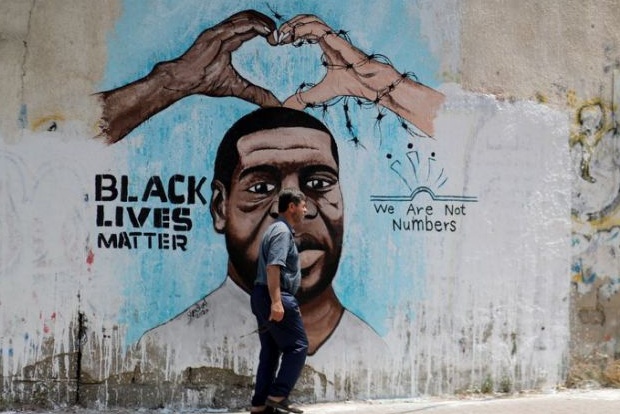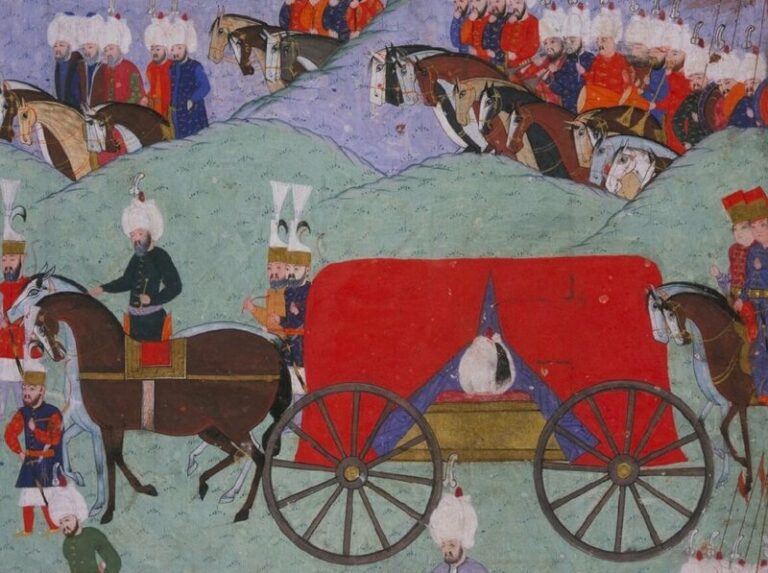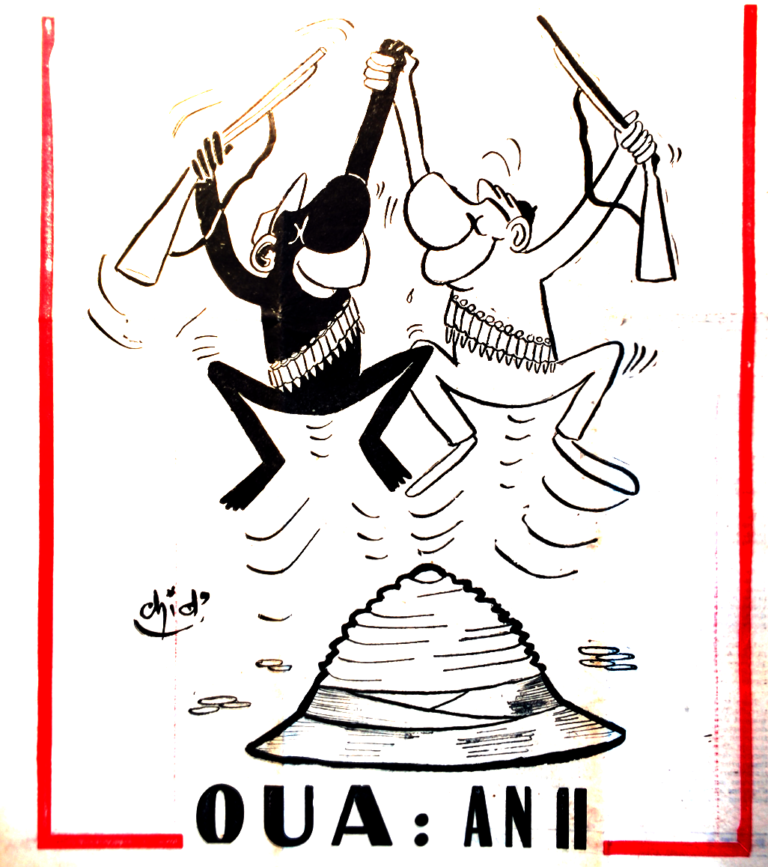This issue marks the tenth year of publishing Lateral. We reflect here on this milestone and highlight work in the current issue, including a new forum on Cultural Constructions of Race and Racism in the Middle East and North Africa / Southwest Asia and North Africa (MENA/SWANA) and a special section on Cripistemologies of Crisis: Emergent Knowledges for the Present. We discuss several of these pieces in relationship to ongoing violence in Israel and attacks in the United States against “critical race theory” and conclude with calls for open access scholarship.
Keyword: race
Review of Open World Empire: Race, Erotics, and the Global Rise of Video Games by Christopher B. Patterson (New York University Press)
In Open World Empire: Race, Erotics, and the Global Rise of Video Games, Christopher B. Patterson critically analyzes video games through the methodological framework of erotics. In doing so, he provides astute insights into the ways in which video games can work to challenge essentialized narratives and constructions of race while also fostering greater awareness and understanding of one’s own place within the larger geopolitical systems of capitalism and empire. Through understanding video gamers as not simply passive receptors of ideology, but rather as active participants in the gameplay experience, he contends that video games create pleasure and other forms of affective engagement through erotic play. Through this erotic play, Patterson argues that “games enact playful protests against the power, identity, and order of information technology” (7).
Introduction: Cultural Constructions of Race and Racism in the Middle East and North Africa / Southwest Asia and North Africa
In recent years, scholars in the fields of cultural studies, American studies, history, ethnic studies, and Middle East area studies have approached questions of race and racism in this geographic region with renewed critical vigor. Recent work deconstructing anti-Arab racism and Islamophobia in the Americas and Europe has put these patterns of discrimination into intersectional conversation with anti-Black and anti-Indigenous racism. New historical efforts have drawn attention to the legacies of slavery in the Ottoman, Persian, and Arab Empires, working to understand how forms of racialization and racial hierarchization predated and were exacerbated by the arrival of European imperial forces. At the same time, activists in the region draw attention to prevailing racism against migrant laborers, marginalized indigenous populations, and others as the afterlives of colonialism, war, austerity, and revolution carry on. Together, this academic and activist work asks for attention by leaders, community members, and scholars of this region to the particularities of racecraft in the region: How are “Blackness” and “whiteness” constructed in the Arabic, Hebrew, Persian, and Turkish speaking worlds? What are the obstacles to discussing and identifying race particular to the histories of this region, its peoples, and its histories? This forum uses close readings of popular culture and political discourse across the Middle East and North Africa / Southwest Asia and North Africa (MENA/SWANA) in pursuit of these questions and others.
An (Un)Marked Foreigner: Race-Making in Egyptian, Syrian, and German Popular Cultures
This essay negotiates the critical tension between race as an analytic and social construct by examining how race becomes socialized in and through the production and presentation of Arab culture in two ethnographic case studies: how Syrian musicians negotiate musical multiculturalism as they integrate into German society and how independent musicians in Egypt navigate the racialized entanglements of national and international security logics that privilege Western foreigners. Both these case studies center the “foreigner” subject as one who embodies proximity to white power and delimits the boundaries of such power. We argue that the category of foreigner is thus a racialized construct that not only complicates the Black–white binary of race relations but strategically evades explicit discourses and practices of racecraft that are violent, discriminatory, and exclusionary. By provincializing critical race theory through the particularities of Arab lived experience, we illustrate how local social categories are entangled with historic legacies of empire and contemporary global logics of racialized difference while remaining sensitive to how conceptions of difference exceed Euro-American categories of race. Our work therefore directs attention towards alternative enactments of racialization within the Global South.
On Blackness and the Nation in Arabic Hip Hop: Case Studies from Lebanon and Libya
In this contribution, Chris Nickell and Adam Benkato think together about the mobilization of Blackness in Arabic hip hop from two different contexts: a rap battle in Beirut, Lebanon and music videos from Benghazi, Libya. In both, hip hop artists confront Blackness with the nation through the Afro-diasporic medium of hip hop. Although the examples we consider here participate, in several ways, in hip hop’s larger generic functions as a globalized Black medium of resistance, they also bolster pre-existing discourses of race and racism, anti-Blackness in particular. We argue that this seeming contradiction—instances of anti-Blackness appearing in an iteration of a Black expressive form—is in fact a feature, not a bug, of the flexible way the genre works. We have paired these two examples, which we describe and analyze individually given their differing social contexts as well as our differing research focuses, in order to glimpse the discursive level at which racecraft functions.
Opposing A Spectacle of Blackness: Arap Baci, Baci Kalfa, Dadi, and the Invention of African Presence in Turkey
The imaging of Africans in Turkey is indicative of the extant register of cultural understanding in the Turkish popular imagination regarding the imaginability, knowability, and understandability of Black form represented. In Turkish popular culture, the figures of the arap baci, baci kalfa, and dadi index this register. This essay takes the representation of Africans on Turkish popular television through the combined usage of blackface-like and drag-like techniques to configure the figures of the arap baci, baci kalfa, and dadi and juxtaposes it against the material ways Turks of African descent have found to figure themselves within the public sphere. This juxtaposition demonstrates how Blackness and Black form are not perennial processes but rather constructed measures that come into relief.
“Incommensurate Ontologies”? Anti-Black Racism and the Question of Islam in French Algeria
In recent years, scholars and activists in France and the United States have questioned whether discrimination against Muslims constitutes a form of racism. In France, some on the left have claimed that religion is a category of belief and therefore should remain separate from discrimination based on skin color or other physical characteristics. In the United States, Afropessimist approaches insist on the specificity of anti-Black racism, rooted in the historical difference between the native and slave. This article, by contrast, argues that race and religion should be studied relationally and highlights how being Muslim exceeded the frame of personal conviction in colonial Algeria, where religious identity was the basis of a political and economic project that were constructed in their wake. The works of Frantz Fanon are particularly instructive in this regard, as he insisted on viewing Blackness as fundamentally relational and also drew on his analysis of anti-Black racism in mainland France to understand the dynamics of settler colonialism in Algeria. The porous line between religious and racial categories also sheds light on discussions of sectarianism in the Middle East more broadly, as colonial regimes irrevocably shaped the contours of the nation-state that were constructed in their wake. Postcolonial sectarianism inherited the intimate relationship between race and religion constructed by empire.
Review of Policing Life and Death: Race, Violence, and Resistance in Puerto Rico by Marisol LeBrón (University of California Press)
Using a multifaceted and transdisciplinary approach, Marisol Lebrón analyzes the development of punitive governance in Puerto Rico. Lebrón’s approach pays particular attention to how capitalist colonial settings in Puerto Rico lead to the categorization of racialized, gendered, and classed populations as problematic subjects who then become the target of state violence as public policy. Intertwined with the state and its legitimacy, the book also looks at how these populations resist repressive policies and affect social relations of power on the island.
Review of Sensual Excess: Queer Femininity and Brown Jouissance by Amber Jamilla Musser (NYU Press)
In Sensual Excess, Amber Jamilla Musser develops an epistemological project that calls into question modes of producing knowledge around black and brown bodies, especially in relationship to femininity and queerness. In doing so, she interrogates the kind of racialized understandings of femininity produced by what Hortense Spillers has called “pornotroping” in order to draw a contrast to something Musser calls “brown jouissance.” She is looking for those places where fleshly experience exceeds the ideological constraints of the pornotropic image, developing an epistemology based not on the visual, but on the affective experiences of the flesh. In doing so she analyzes Lyle Ashton Harris’s Billie #21 (2002), Judy Chicago’s The Dinner Party (1979), Kara Walker’s A Subtlety (2014), Mickalene Thomas’s Origin of the Universe 1 (2012), Cheryl Dunye’s Mommy is Coming (2012), Amber Hawk Swanson and Sandra Ibarra’s Untitled Fucking (2013), Carrie Mae Weems’s From Here I Saw What Happened and I Cried (1995–1996), Nao Bustamantes’s Neapolitan (2003), and Maureen Catabagan’s Crush (2010–2012).
Review of Political Blackness in Multiracial Britain by Mohan Ambikaipaker (University of Pennsylvania Press)
Mohan Ambikaipaker’s “Political Blackness in Multiracial Britain” is distinctive both for its setting and for its personal engagement. Ambikaipaker practiced “activist anthropology” by carrying out “observant participation” as a caseworker for the Newham Monitoring Project, a community activism organization, over the course of two years. The book alternates between anecdotal accounts of racism and the author’s theoretical and historical framing of those accounts. Ambikaipaker’s writing is compelling, his theoretical grounding is thorough, his empathy is apparent, and the fieldwork underpinning it is considerable and consequential.
Review of Measuring Manhood: Race and the Science of Masculinity, 1830–1934 by Melissa N. Stein (University of Minnesota Press)
Melissa N. Stein’s Measuring Manhood tackles the complex intersections of race, gender, sexuality, and their attendant “sciences” across a century of US history. While the burgeoning fields of ethnology and sexology were equally prominent in Europe during this period, her focus on the US specifies the ways in which American “racial scientists” and sexologists differed from their European counterparts, as their research was often used to justify or bolster nation-specific cultural norms and legislation. The concept of masculinity was not simply a matter of “manhood” in the narrow sense, but carried with it a glut of other associations: humanity, civilization, citizenship, intelligence, morality, whiteness, cisgender heterosexuality, and middle-class restraint. Stein manages to convey the complexity and reciprocity of these constructions in each chapter with careful argumentation and ample examples.
Review of Civil Racism: The 1992 Los Angeles Rebellion and The Crisis of Racial Burnout by Lynn Mie Itagaki (University of Minnesota Press)
Lynn Mie Itagaki contributes to cultural and comparative race studies by uncovering the implications of what she calls the 1992 Los Angeles Rebellion—a constellation of events spurned on by the Rodney King verdict—for intersecting groups and communities including women, immigrants, Black, Asians, and Latina/o-Americans. Each chapter provides a different context (family, education, neighborhood) for structures and discourses that perpetuate civil racism, while at the same time illuminating specific acts of resistance and subversion that occur, in each instance, through media, activism, and art. Itagaki’s methodology moves beyond critical literary analysis to provide important social commentary and critique that will prove useful to interdisciplinary scholars seeking to learn about racial formations in the neoliberal U.S. context.
Review of In the Wake: On Blackness and Being by Christina Sharpe (Duke University Press)
Christina Sharpe’s “In the Wake: On Blackness and Being” addresses issues of citizenship, racial violence, and black mortality, meshing her personal experiences surrounding death and “the wake” with a sharp critique of cultural structures, as well as a reimagining of slavery, funeral, and death metaphors. In the wake of so many “ongoing state-sanctioned legal and extralegal murders of Black people,” Sharpe’s argument that black death is a foundational aspect of American citizenship encourages readers to acknowledge the antiblackness embedded in the past, present, and future of American (and by extension, Transatlantic) democracy (7). With the continued and encouraged proliferation of black death in the global diaspora, Sharpe’s study will, hopefully, usher in more woke scholarship that questions pervasive antiblackness.
Review of Football and Manliness: An Unauthorized Feminist Account of the NFL by Thomas P. Oates (University of Illinois Press)
In ‘Football and Manliness,’ Thomas B. Oates offers a prescient intersectional feminist analysis of the central symbolic place of the National Football League in U.S. culture and politics. In each chapter, Oates provides close readings of various popular media texts, which, despite remaining secondary to the spectacle of televised games, profoundly shape the ideological work the NFL performs in relation to dominant constructions of race, gender, sexuality, and class. These texts include fictionalized cinematic and televised melodramas depicting the internal dynamics of professional football teams; sports media coverage of the NFL draft; self-help books authored by noted NFL coaches; computer-based games, including fantasy league football and Madden NFL; and lastly, the investigative reportage that ignited the NFL concussion scandal. As Oates succinctly posits, “these texts produce a complex but ultimately coherent set of stories about gender, race, and contemporary capitalism” (20).
Every Little Thing He Does: Entrepreneurship and Appropriation in the Magic Mike Series
This essay analyses the theatricalized performance of stripping in the popular films Magic Mike (2013; dir. Steven Soderbergh) and its sequel, Magic Mike XXL (2015; dir. Gregory Jacobs). Following a critical dance studies approach that attends to the intersection of body and gesture with socio-political, historical, and economic structures, I suggest theatricalized sexual labour in these films reveals the racial exclusions from the ideology of entrepreneurship. Considering the appropriation of black aesthetics in Magic Mike XXL’s performances of striptease, the film seeks to evaporate the spectre of race, that is, the way the white fantasy of the entrepreneurial subject is supported by the appropriation of racialized and especially black labour.












